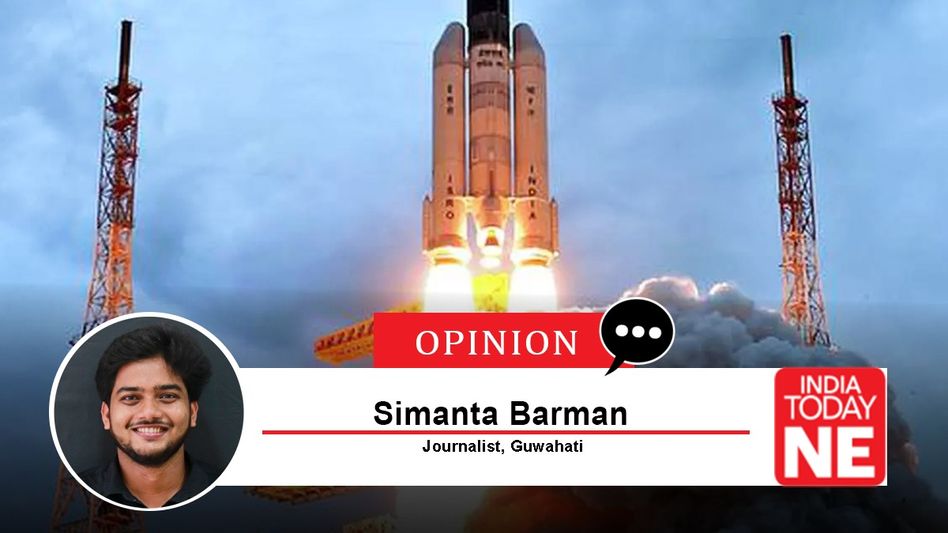Sovereignty in space situational awareness: A call of the time
India's space odyssey, from bicycle-carried rockets to top-five global ranking, underscores its ambition. Achieving sovereignty in Space Situational Awareness (SSA) is crucial amid increasing global threats, as experts call for heightened space monitoring.

Whenever India makes a significant stride in space, the picture of a ‘rocket being carried on a bicycle’ during the country's early space exploration phase resurfaces. The bicycle was India’s vehicle of hope for going beyond the sky, and today the nation features among the top five leading space-faring nations in the world. It took years for the country to become sovereign in space exploration, and ages to open its door for private participation. Although 2020 marked a new dawn for India’s private space sector with the government's nod, the next most imperative time to claim sovereignty is now – this time the sovereignty is in Space Situational Awareness (SSA). In a growing cross-national threat environment, sovereign SSA becomes paramount to keep aloof national integrity.
Today, SSA is not only limited to assessing the space for potential threats, it is now more of a robust shield to maintain an operational space environment conducive to national security, technological assertion, and scientific prosperity. For a rapidly growing nation like India, the onus is higher on making stringent investments to enrich the sector.
There has been an ongoing unannounced war among the leading space-faring nations to assert dominance in space. Experts and defence heads are of the view to strengthen space monitoring to such a level that foreign threats cannot uproot any advances and pose a security risk. In its Space Threat Assessment 2024 report, the Center for Strategic & International Studies (CSIS) asserts the growing importance of space threat assessment for economic prosperity and national defense worldwide, especially in an era marked by global interconnectedness. Acknowledging India’s stride in having more launches than Japan and Europe combined in 2023, only behind the US and China, CSIS sheds light on India’s lean towards expanding space avenues for military purposes.
In light of the growing threat, Lt. General Steven L. Basham for the United States European Command calls for cooperation among allies and partners in ensuring sovereignty in the space domain. He stresses continuous review and upgradation of policies and joint doctrines. Regina Peldszus also argues on the same line for cooperation among nations in Foresight methods for multilateral collaboration in space situational awareness (SSA) policy & operations. She views that SSA has now evolved beyond a single-state actor to a multifaceted one, which shall be assessed following foresight methodologies.
But for India, which is yet to zero in on a long overdue National Security Strategy, multi-national collaboration may be tricky. The National Security Strategy has been argued over for a long time, only with more rigor after the opening of the space sector to private participation. Although the proposed Strategy is yet to define what constitutes ‘national security’ per se, there shall not be a doubt that SSA will get under its gamut, or rather it is a necessity, especially considering the neighbourhood situation and global crises. Experts stress for urgent consideration of the Strategy in view of the perplexing geopolitical dynamics. Without a speedy assessment of the economy and policies, navigating national security concerns may have its own dilemmas.
The Indian Space Research Organization (ISRO) brings an annual Indian Space Situational Assessment Report (ISSAR) assessing the threat landscape for India. In its 2023 report, ISRO
stresses the ever-increasing number of space objects and subsequent accumulation of space debris. At 3033, ISRO recorded the highest number of close approach alerts, while the number of Collision Avoidance Manoeuvre executed was also the highest. Mega constellations, space tourism, human presence beyond Earth etc., are adding up to the challenges in effective mitigation of threats. Owing to the lack of a universally accepted framework for Space Traffic Management, unlike air and marine traffic, a case-by-case coordination mechanism must be followed.
In such a scenario, it is India’s new-age space startups that are helping sail the ship until it anchors to better safety. Bengaluru-based Digantara’s core projects such as Space-MAP (Space Mission Assurance Platform) is enabling a comprehensive map for tracking space debris and other components, while STARS (Space Threat Assessment and Response Suite) is building a repository of SSA data to enhance the sovereignty of space capabilities, respectively. Why they are of grave importance for an expanding clientele is that these advanced infrastructures enable a nation to go beyond the SSA sovereignty and enrich Space Domain Awareness (SDA) to comprehend any kind of space activities including the intentions, capabilities and behaviors of space objects. In a growing threat environment, nations with less sovereign space infrastructures are looking for collaborations and to invest in purchasing services. Smaller nations like Poland, Luxemburg, Singapore, etc. are investing in acquiring space monitoring tools. India is also at a stage of allying with nations – big or small, who align with our national interest. The role of new-age space startups becomes paramount in such a scenario for outlining a mutually beneficial roadmap.
As immediate measures, however, it remains paramount that India finalises its National Security Strategy, increases funding to support the homegrown startups, and invests more on research and development to emerge as an SSA sovereign nation.
Copyright©2026 Living Media India Limited. For reprint rights: Syndications Today









